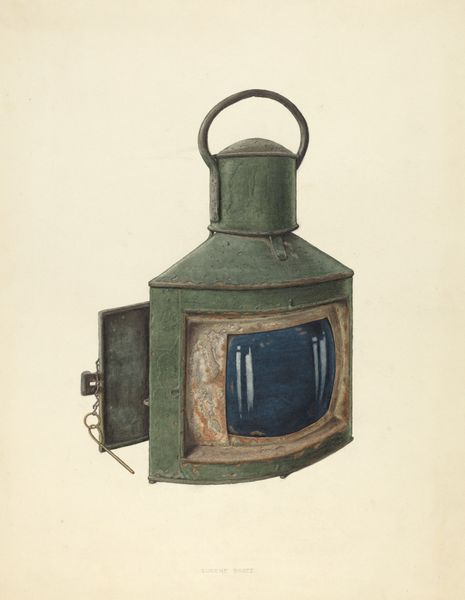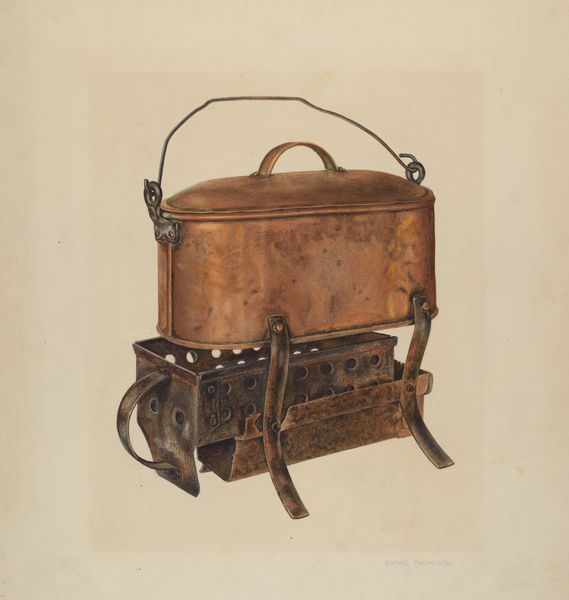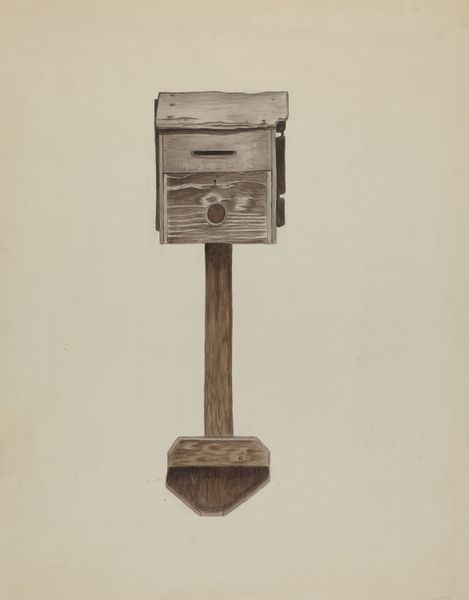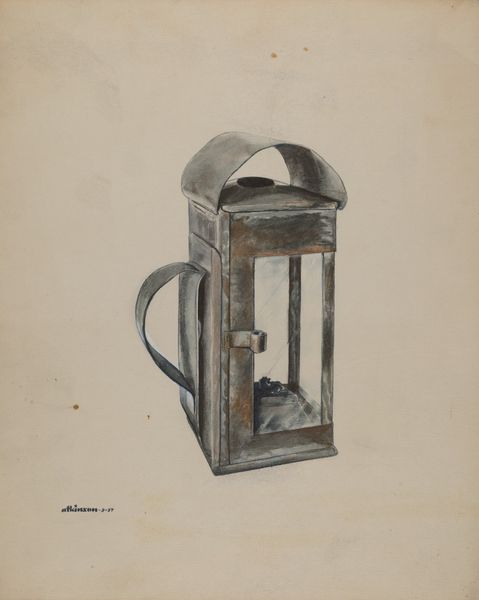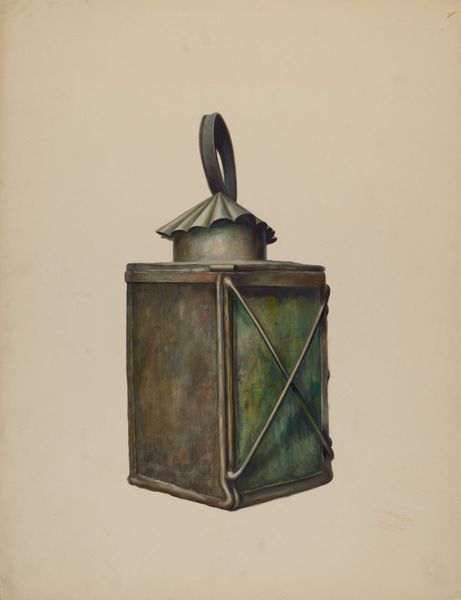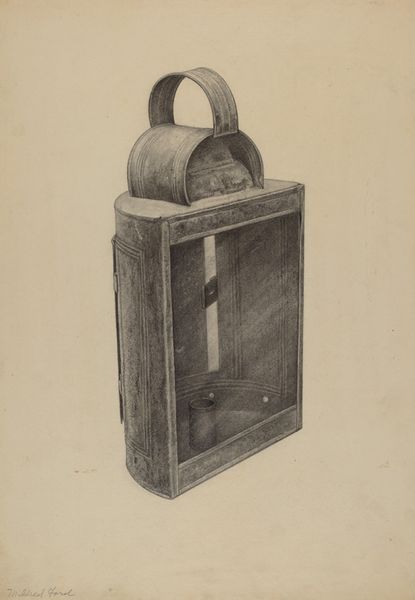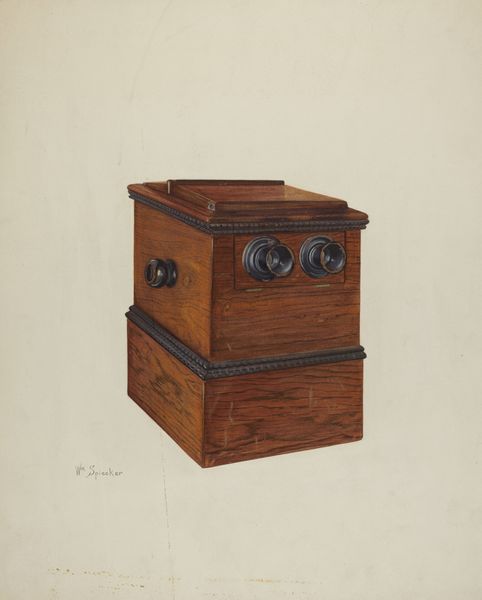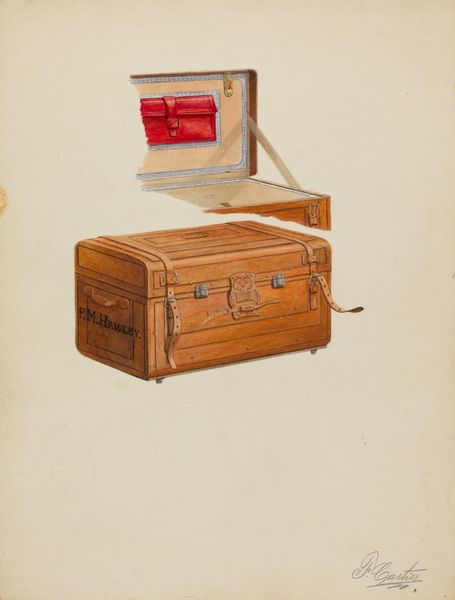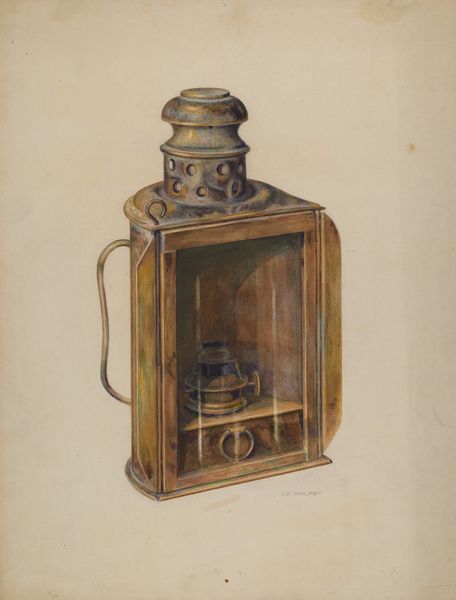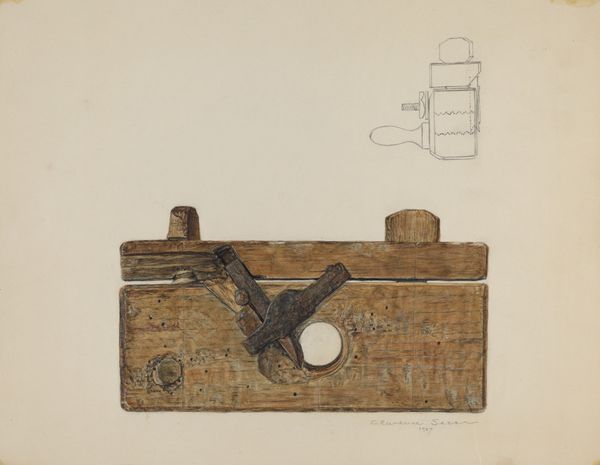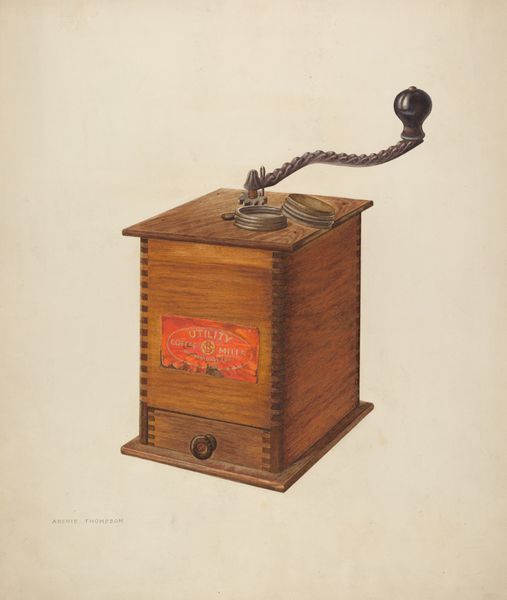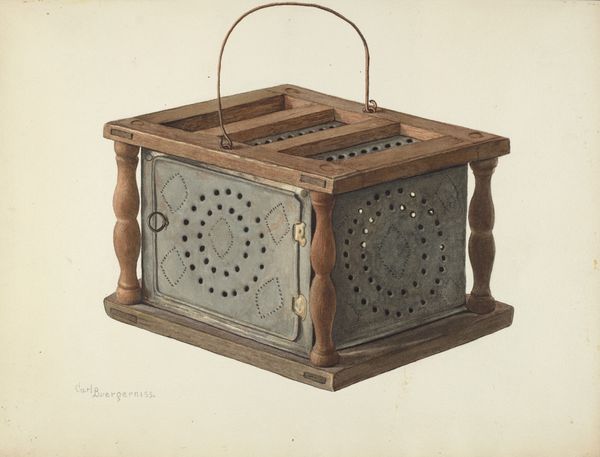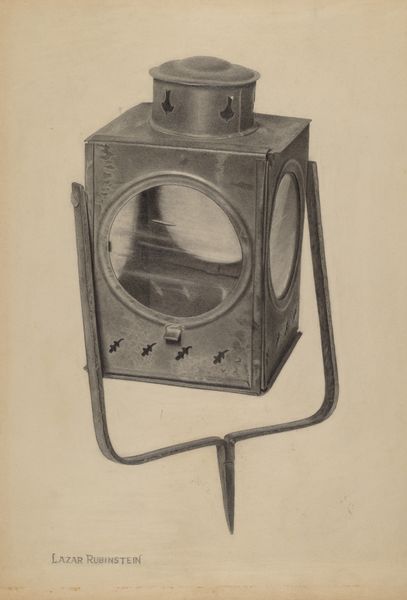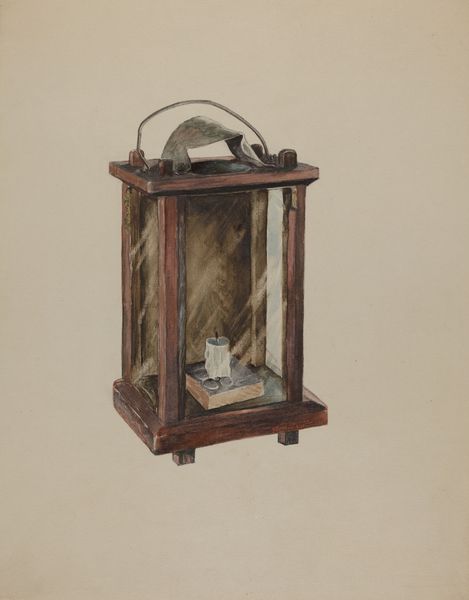
drawing, watercolor, pencil, charcoal
#
drawing
#
charcoal drawing
#
watercolor
#
pencil drawing
#
pencil
#
charcoal
#
watercolor
#
realism
Dimensions: overall: 35.5 x 27.9 cm (14 x 11 in.) Original IAD Object: 18" high; 9" wide
Copyright: National Gallery of Art: CC0 1.0
Editor: Here we have Albert Geuppert’s “Railway Lantern” from 1938, rendered in pencil, charcoal, and watercolor. It's amazing how he captured the worn texture of the metal. What draws your attention when you look at this? Curator: What immediately strikes me is the deliberate rendering of a mass-produced object, something purely functional. Geuppert chose to represent an object intrinsically tied to labor and industry, but he elevated it through traditional drawing and watercolor techniques. The labor isn’t just present in the railway worker’s usage of the lamp but also in the artistic labor of representing this very item. Editor: That's fascinating, I hadn't considered the artistic labor involved. Does the choice of medium – charcoal, watercolor, and pencil – tell us anything more? Curator: Absolutely. These materials are relatively inexpensive and accessible. Watercolor especially, is commonly regarded as a craft. By using them, Geuppert blurs the boundaries between fine art and craft. It encourages us to consider who has access to artmaking. It speaks to a democratization of artistic expression through everyday materials and the depiction of an object born out of industrial labor. Editor: So, the lantern is not just an object, but also a reflection on artistic creation itself and also social dynamics. Curator: Precisely. It’s about making visible the labor – both industrial and artistic – inherent in this seemingly simple image. Editor: I’ll definitely think differently about realism now! Curator: That is precisely the point. Everything from subject to material informs meaning.
Comments
No comments
Be the first to comment and join the conversation on the ultimate creative platform.
